.avif)
In the dynamic world of cryptocurrency, where digital assets have revolutionized the way we perceive and transact with money, a new breed of financial tools has emerged to bridge the gap between traditional banking systems and the crypto realm. Enter crypto credit cards, the futuristic fusion of convenience, security, and financial freedom. As we step into 2023, the landscape of crypto credit cards has expanded, offering unparalleled benefits and opportunities for crypto enthusiasts. In this article, we dive deep into the realm of crypto credit cards and present to you the top 5 game-changers that are redefining the way we leverage our digital wealth. Buckle up as we embark on a thrilling journey through the cutting-edge innovations and unprecedented perks that await those who dare to explore the world of crypto credit cards in 2023.
What is a Crypto Credit Card?
A crypto credit card is a payment card that allows users to spend a credit line of their choosing, potentially using crypto as collateral, and earn rewards in crypto. You can also get crypto debit cards that allow you to spend a balance of crypto more easily.
Crypto credit cards are now offered by major payment processors like Visa and Mastercard, often in partnership with large crypto businesses like Gemini and Nexo.
Decoding the Inner Workings of Crypto Credit Cards
Crypto credit cards work the same way any other credit card would work - it’s just that your balance or rewards will be in crypto. Otherwise, you’ll be able to spend as you would with any other traditional credit card.
The Advantages of Using a Crypto Credit Card
The main reason people use a crypto credit card as opposed to a traditional credit card is so that they can more easily spend their crypto. While crypto has moved closer to the mainstream in recent years, many merchants still don’t accept crypto as a means of payment. A crypto credit card can help you spend crypto more easily, or earn crypto rewards for spending. In some instances, it can also help you from a tax perspective by letting you effectively spend your crypto without creating a taxable event.
Top 5 Crypto Credit Cards in 2023
When it comes to selecting a crypto credit card, there are various factors to take into account. In this article, we examine five of the top options based on seven important criteria. Each of these cards possesses unique advantages and disadvantages, so let's delve deeper into the details of each one.

Brex Crypto Credit Card: A Closer Look at its Perks
Brex Credit Card caters specifically to small businesses and startups, offering a global corporate card solution with the added benefit of crypto rewards.
Available in both physical and virtual forms, the Brex Credit Card is accepted worldwide. It provides various credit limits with a variable APR, alongside custom controls and real-time expense tracking features.
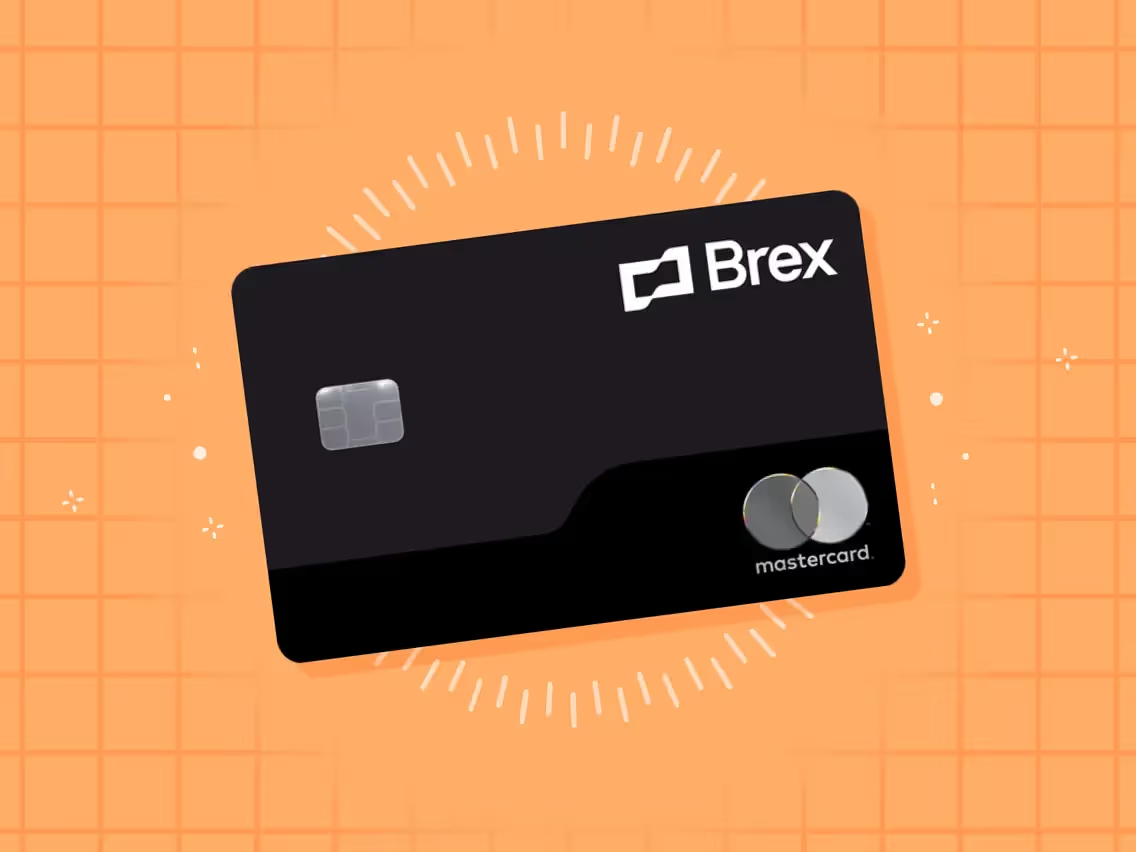
With the Brex card, users earn points for every dollar spent. The standard rate is 1 point per $1 spent, but if the Brex card is the sole company card, higher rates of up to 7 points per $1 spent are possible for specific purchases like rideshares and taxis.
What sets Brex apart is its integration of crypto rewards. Cardholders have the option to redeem their accumulated Brex rewards for Bitcoin or Ethereum. For every 100 points redeemed, users receive 70 cents worth of crypto, which can be conveniently redeemed through a Coinbase account.
As a bonus, new users can enjoy a signup bonus of 50,000 points when they spend $9,000 within the first month of card activation.
Key features of the Brex Credit Card include its suitability for small businesses and startups, the absence of annual fees, a points-based reward program, the ability to redeem points for crypto using Coinbase, and the availability of variable APR and credit lines.
Gemini Crypto Credit Card: Analyzing its Key Features
The Gemini Credit Card, in collaboration with Gemini, a popular crypto exchange, offers users a Mastercard with exciting features.
With the Gemini Crypto Credit Card, users can enjoy a variable APR ranging from 17.74% to 29.74%, and there are no annual fees associated with the card.
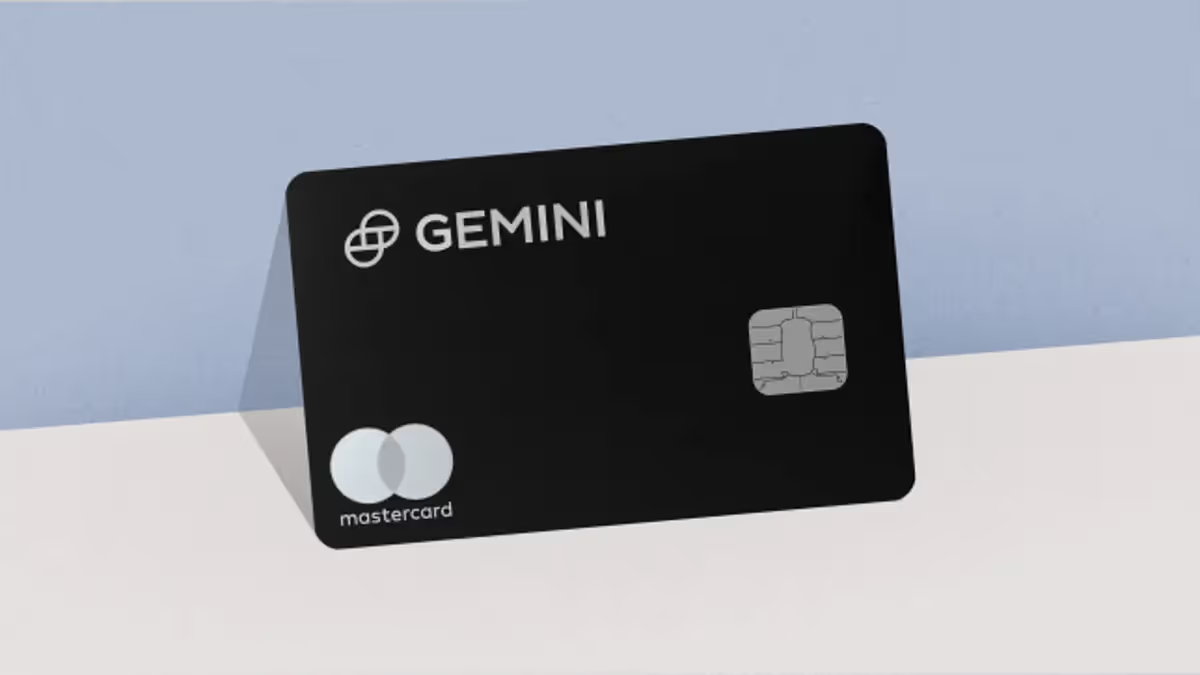
One of the key benefits of the Gemini card is the opportunity to earn crypto rewards while making purchases. Cardholders can choose from a selection of over 40 cryptocurrencies available on the Gemini exchange, including popular options like Bitcoin and Ethereum. Depending on the type of purchase, users can earn up to 3% back on dining, 2% on groceries, or 1% on all other transactions.
A notable advantage of the Gemini Credit Card is the immediate receipt of rewards. As soon as the card is swiped, users receive their rewards without any waiting period.
In terms of security, Gemini Credit Card users benefit from the robust security measures implemented by the leading crypto exchange. Additionally, the card offers Mastercard security features such as Zero Liability Protection and ID Theft Protection.
The Gemini card is available to residents of all 50 states in the United States, and it is offered in both physical and virtual card formats.
Key features of the Gemini Crypto Credit Card include its free issuance with no annual fees, availability as a virtual or physical card, a variable APR between 17.74% and 29.74%, up to 3% crypto rewards depending on the purchase, the ability to choose from 40 cryptocurrencies as rewards, and availability limited to US residents.
Nexo Crypto Credit Card: Unveiling its Features and Benefits
The Nexo Crypto Credit Card stands out as one of the leading options in the crypto credit card market today. It offers the unique advantage of allowing users to utilize their crypto assets as collateral, thereby increasing liquidity without the need to sell their holdings.
With Nexo, you can secure funds starting from 0% APR, which can go up to 13.9% APR based on individual circumstances. The card comes with several enticing benefits, including no minimum monthly payments, annual fees, or inactivity fees.
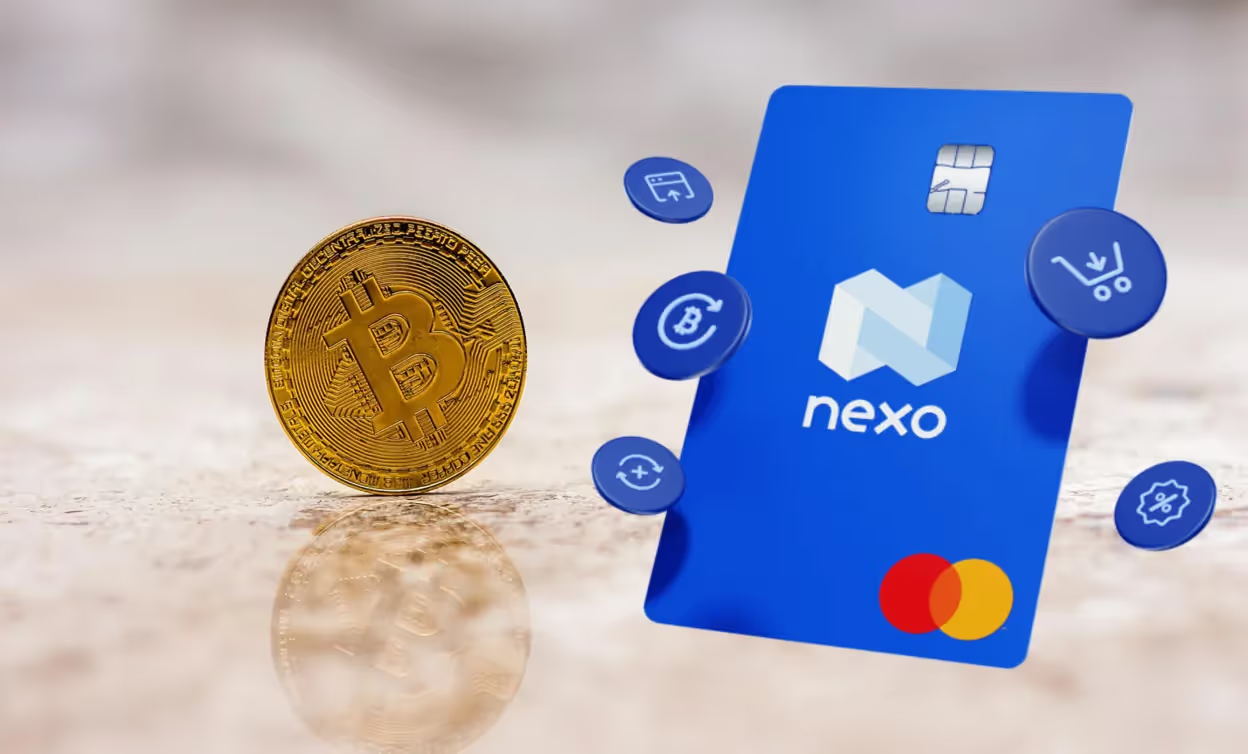
Nexo offers both virtual and physical card options, enabling users to conveniently make payments through Apple Pay and Google Pay. Accepted by over 90 million merchants worldwide, thanks to its partnership with Mastercard, the Nexo Crypto Credit Card also provides up to 10 free ATM withdrawals each month.
A notable perk of using the Nexo card is the rewards program. Users can earn either 2% cashback in NEXO tokens or 0.5% cashback in BTC for their spending activities.
In terms of security, Nexo empowers users to manage their card settings, monitor transactions through instant spending notifications, and easily modify their PIN or freeze the card through the app.
One of the major advantages of the Nexo Crypto Credit Card is its tax benefits. By utilizing this card, users can spend their crypto without triggering Capital Gains Tax, as the card allows for increased liquidity without the need to sell the assets.
Key features of the Nexo Crypto Credit Card include its free issuance with no annual fees or minimum repayments. The card seamlessly integrates with Apple Pay and Google Pay, offering flexible payment options. The credit lines range from 0% to 13.9% APR, and users have the opportunity to earn either 2% NEXO or 0.5% BTC cashback. Additionally, the Mastercard affiliation ensures acceptance at more than 90 million merchants globally.
It's important to note that currently, the Nexo Crypto Credit Card is only available to individuals residing in the European Economic Area (EEA).
Upgrade Crypto Credit Card: Exploring its Advantages
The Upgrade Bitcoin Rewards Credit Card offers a more traditional credit card experience while providing unlimited 1.5% Bitcoin rewards on all purchases once they are repaid.
As a Visa credit card, it enjoys wide acceptance among merchants, and there are no annual fees associated with it. However, users must make monthly minimum repayments based on a fixed-rate repayment schedule, and the variable APR ranges from 14.99% to 29.99%.
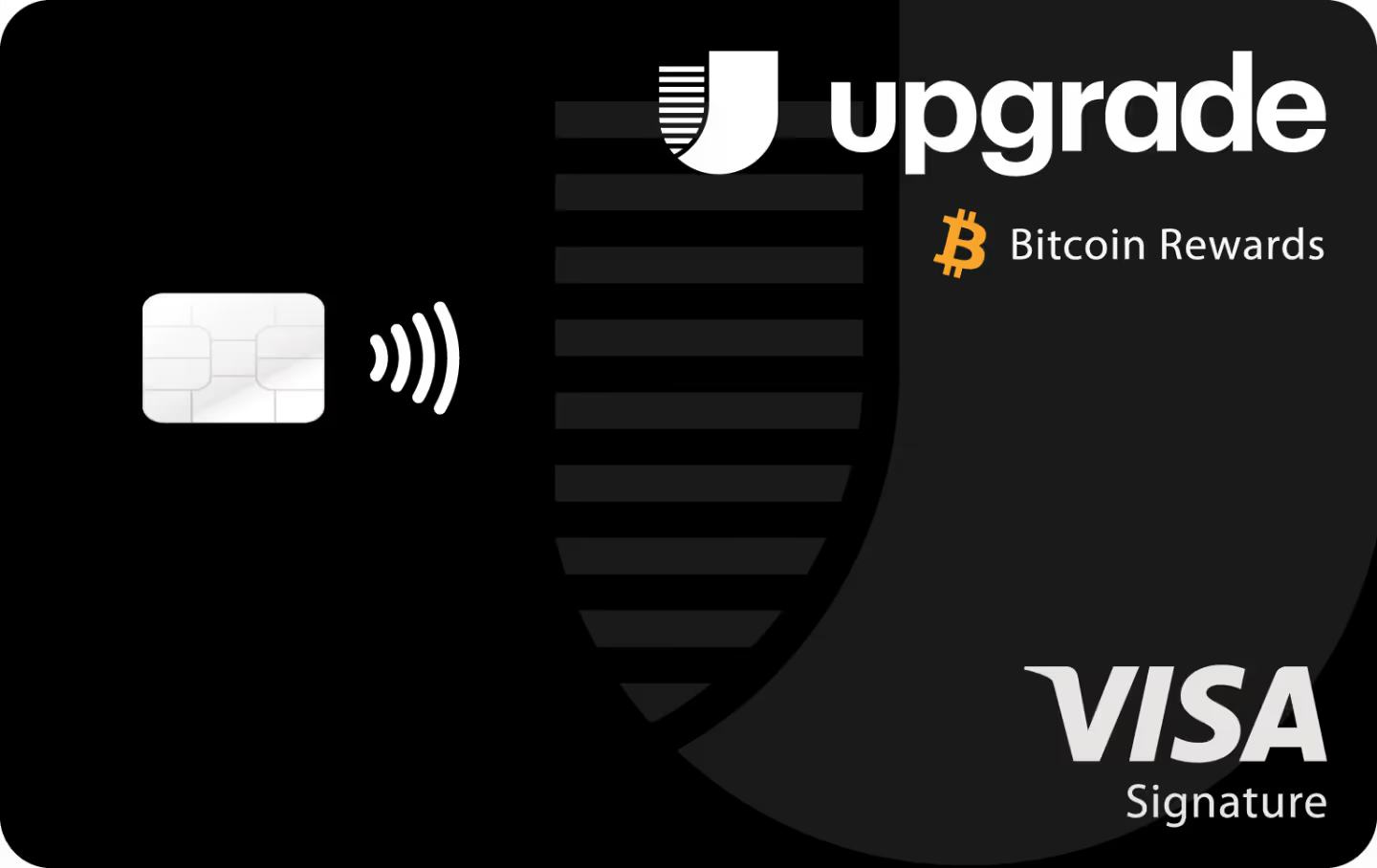
Depending on an individual's credit score, credit lines ranging from $500 to $25,000 are available. Additionally, new users or those opening other Upgrade products may have access to various bonuses.
The Upgrade Bitcoin Rewards Credit Card is accessible as a contactless virtual card and seamlessly integrates with Apple Pay and Google Pay.
Key features of the Upgrade Bitcoin Rewards Credit Card include no annual fees, the availability of a virtual card compatible with Google Pay and Apple Pay, an APR between 14.99% and 29.99%, unlimited 1.5% BTC rewards on purchases once repaid, and credit lines extending up to $25,000.
It's worth noting that the Upgrade Bitcoin Rewards Credit Card is currently only available in specific states within the United States.
Venmo Crypto Credit Card: Understanding its Benefits
Introducing the Venmo Credit Card, a Visa Card that offers the same convenient perks as your Venmo account. With a QR code feature to split bills with friends and easy management through the Venmo app, this card brings added flexibility to your financial transactions.
When you use the Venmo Credit Card for purchases, you can earn cashback of up to 3%, depending on the spending category. Venmo has identified eight categories, including travel, transport, groceries, entertainment, dining & nightlife, bills & utilities, health & beauty, and gas. Your top spending category will earn you 3% cashback, followed by 2% cashback on the next category, and 1% cashback on all other eligible purchases.
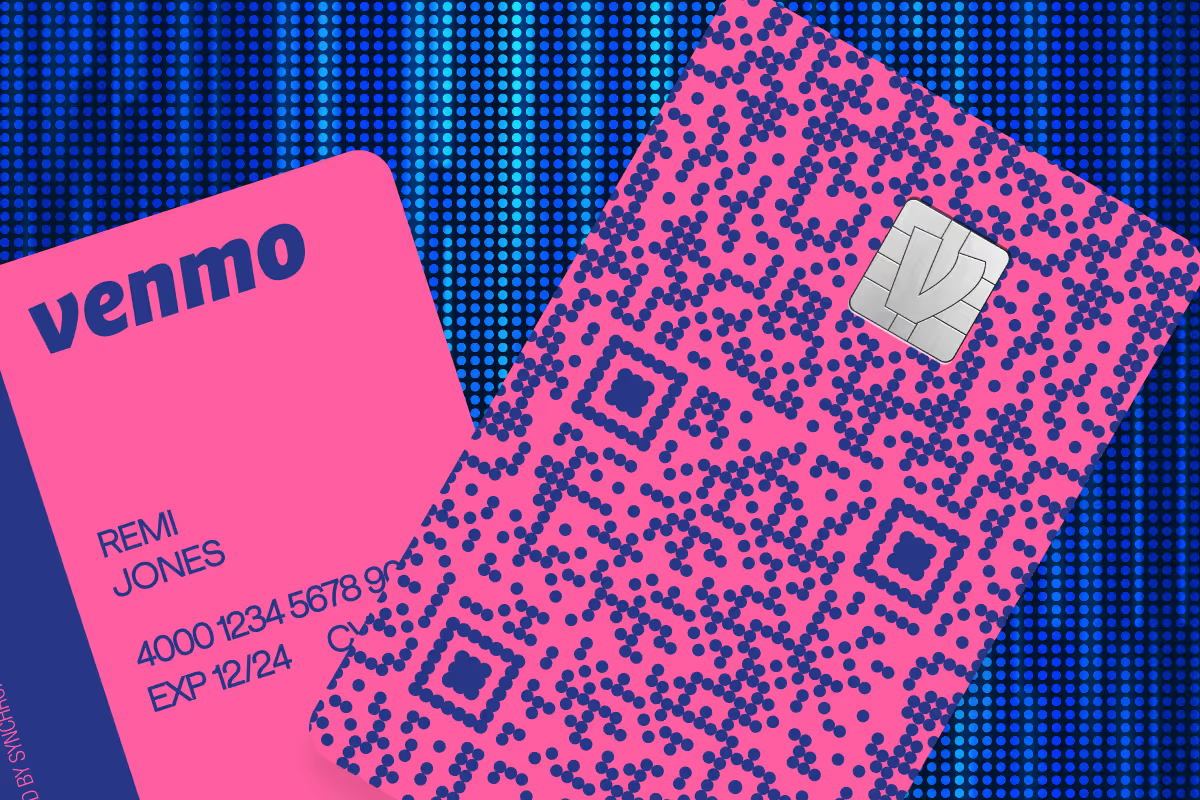
Now, let's dive into the crypto aspect. The Venmo Credit Card offers a unique feature called Cash Back to Crypto. Through this feature in the app, users can automatically convert their earned cashback rewards into cryptocurrency. Currently, you have the option to choose from Bitcoin, Ethereum, Litecoin, or Bitcoin Cash. Furthermore, Venmo allows you to hold or sell your crypto within the app itself.
It's important to note that the Venmo Credit Card is exclusively available to users within the United States. While there are no annual fees associated with the card, the APR ranges from 19.49% to 28.49%.
Key features of the Venmo Credit Card include no annual fees, APR between 19.49% and 28.49%, cashback rewards of up to 3%, automated conversion of rewards to crypto with support for four cryptocurrencies, and availability limited to users in the United States.
Understanding the Tax Implications of Crypto Credit Cards
The taxation of cryptocurrencies varies depending on your country of residence. It is advisable to consult country-specific guides or seek professional advice for accurate information. In most cases, using crypto for purchases is considered a disposal, potentially subject to Capital Gains Tax if there is a capital gain.
However, certain crypto credit cards, such as the Nexo Crypto Credit Card, function differently. These cards utilize your crypto as collateral to provide a credit line, which may offer increased liquidity without triggering a taxable event.
Regarding crypto rewards from credit cards, there is limited guidance available. Typically, cashback and rewards earned from traditional credit cards are not treated as taxable income. Therefore, it is possible that crypto rewards may also not be taxable. Nevertheless, it is crucial to consult with a qualified tax professional in your jurisdiction to obtain specific advice on your potential tax obligations.
Ensuring Safety: The Security Measures of Crypto Credit Cards
Most reputable crypto credit cards are considered secure and safe to use. These cards are typically developed in collaboration with well-known payment processors like Visa or Mastercard, ensuring they incorporate standard security measures and features. Additionally, many of these cards are established through partnerships with major crypto exchanges such as Gemini or Coinbase, which often implement leading security practices within the crypto industry.

However, it is important to note that the safety of your funds ultimately relies on your own actions and precautions. It is crucial never to disclose your personal information or banking details to unknown individuals or entities. It is advisable to exercise caution and remain vigilant to protect yourself against common scams and fraudulent activities.
Where Can You Use Your Crypto Credit Card?
Crypto credit cards can typically be used at any merchant that accepts major payment networks such as Mastercard or Visa. This means you can use these cards at a wide range of stores and establishments worldwide. In fact, the majority of merchants globally accept Mastercard or Visa, making crypto credit cards a convenient payment option in numerous locations.
Can a Crypto Credit Card Replace Your Traditional Credit Card?
It is advisable to carefully evaluate and compare the risks and benefits associated with both traditional credit cards and crypto credit cards. Each type of card has its own advantages and disadvantages, so it may be beneficial to consider having both, depending on your individual financial situation and needs. By having both types of cards, you can potentially enjoy the advantages offered by each while mitigating any potential drawbacks. It is important to conduct a thorough assessment of your specific requirements before making a decision.

Our Methodology: How We Rated the Best Crypto Credit Cards to Consider
When selecting a crypto credit card, there are several important factors to consider:
Fees: It's essential to understand the fee structure associated with crypto credit cards. Some cards may have transaction fees or annual fees, so it's crucial to compare different options and choose one that aligns with your budget and requirements.
Rewards: Different crypto credit cards offer varying types of rewards. These can range from cashback to discounts and other perks. Select a card that provides rewards that are valuable and relevant to your preferences and spending habits.
Security Features: Robust security features, such as encryption, two-factor authentication (2FA), and fraud protection, are vital for safeguarding your crypto assets. Ensure that the crypto credit card you choose offers top-notch security measures.
Customer Support: Prompt and efficient customer support is crucial in resolving any issues or concerns that may arise. Researching customer reviews, such as those on platforms like Trustpilot, can help you gauge the quality of customer support offered by the card issuer.
Reputation: Trust is paramount when it comes to your card issuer. Consider the reputation of the crypto credit card issuer or the involvement of reputable global payment processors like Mastercard. A trustworthy and reliable issuer inspires confidence in the safety and reliability of the card.
Compatibility: Some crypto credit cards are limited to specific cryptocurrencies. Ensure that the card you choose supports the cryptocurrencies you intend to use, allowing for seamless compatibility.
Considering these factors can help you make an informed decision when selecting a crypto credit card. In assessing the best crypto credit cards for 2023, we have taken all these criteria into account.
FAQs
1. What are crypto credit cards?
Crypto credit cards are innovative financial tools that allow users to spend their cryptocurrencies like Bitcoin or Ethereum in the same way they would use a traditional credit card. These cards integrate cryptocurrency wallets and traditional payment systems, enabling users to make purchases at any merchant that accepts credit cards.
2. How do crypto credit cards work?
Crypto credit cards work by linking your cryptocurrency wallet to a physical or virtual card. When you make a purchase using the card, the cryptocurrency is converted into the local fiat currency in real-time, allowing you to spend your digital assets seamlessly.
3. What advantages do crypto credit cards offer?
Crypto credit cards offer several advantages. Firstly, they provide the convenience of using cryptocurrencies for everyday transactions. Additionally, they often come with rewards programs, such as cashback or loyalty points, allowing users to earn additional benefits while spending. Moreover, some crypto credit cards offer enhanced security features, like two-factor authentication and biometric verification, providing peace of mind for users.
All content on Kryptos serves general informational purposes only. It's not intended to replace any professional advice from licensed accountants, attorneys, or certified financial and tax professionals. The information is completed to the best of our knowledge and we at Kryptos do not claim either correctness or accuracy of the same. Before taking any tax position / stance, you should always consider seeking independent legal, financial, taxation or other advice from the professionals. Kryptos is not liable for any loss caused from the use of, or by placing reliance on, the information on this website. Kryptos disclaims any responsibility for the accuracy or adequacy of any positions taken by you in your tax returns. Thank you for being part of our community, and we're excited to continue guiding you on your crypto journey!
| Step | Form | Purpose | Action |
|---|---|---|---|
| 1 | 1099-DA | Reports digital asset sales or exchanges | Use to fill out Form 8949. |
| 2 | Form 1099-MISC | Reports miscellaneous crypto income | Use to fill out Schedule 1 or C. |
| 3 | Form 8949 | Details individual transactions | List each transaction here. |
| 4 | Schedule D | Summarizes capital gains/losses | Transfer totals from Form 8949. |
| 5 | Schedule 1 | Reports miscellaneous income | Include miscellaneous income (if not self-employment). |
| 6 | Schedule C | Reports self-employment income | Include self-employment income and expenses. |
| 7 | Form W-2 | Reports wages (if paid in Bitcoin) | Include wages in total income. |
| 8 | Form 1040 | Primary tax return | Summarize all income, deductions, and tax owed. |
| Date | Event/Requirement |
|---|---|
| January 1, 2025 | Brokers begin tracking and reporting digital asset transactions. |
| February 2026 | Brokers issue Form 1099-DA for the 2025 tax year to taxpayers. |
| April 15, 2026 | Deadline for taxpayers to file their 2025 tax returns with IRS data. |
| Timeline Event | Description |
|---|---|
| Before January 1, 2025 | Taxpayers must identify wallets and accounts containing digital assets and document unused basis. |
| January 1, 2025 | Snapshot date for confirming remaining digital assets in wallets and accounts. |
| March 2025 | Brokers begin issuing Form 1099-DA, reflecting a wallet-specific basis. |
| Before Filing 2025 Tax Returns | Taxpayers must finalize their Safe Harbor Allocation to ensure compliance and avoid penalties. |
| Feature | Use Case Scenario | Technical Details |
|---|---|---|
| Automated Monitoring of Transactions | Alice uses staking on Ethereum 2.0 and yield farming on Uniswap. Kryptos automates tracking of her staking rewards and LP tokens across platforms. | Integrates with Ethereum and Uniswap APIs for real-time tracking and monitoring of transactions. |
| Comprehensive Data Collection | Bob switches between liquidity pools and staking protocols. Kryptos aggregates all transactions, including historical data. | Pulls and consolidates data from multiple sources and supports historical data imports. |
| Advanced Tax Categorization | Carol earns from staking Polkadot and yield farming on Aave. Kryptos categorizes her rewards as ordinary income and investment income. | Uses jurisdiction-specific rules to categorize rewards and guarantee compliance with local tax regulations. |
| Dynamic FMV Calculation | Dave redeems LP tokens for Ethereum and stablecoins. Kryptos calculates the fair market value (FMV) at redemption and during sales. | Updates FMV based on market data and accurately calculates capital gains for transactions. |
| Handling Complex DeFi Transactions | Eve engages in multi-step DeFi transactions. Kryptos tracks value changes and tax implications throughout these processes. | Manages multi-step transactions, including swaps and staking, for comprehensive tax reporting. |
| Real-Time Alerts and Updates | Frank receives alerts on contemporary tax regulations affecting DeFi. Kryptos keeps him updated on relevant changes in tax laws. | Observe regulatory updates and provide real-time alerts about changes in tax regulations. |
| Seamless Tax Reporting Integration | Grace files taxes using TurboTax. Kryptos integrates with TurboTax to import staking and yield farming data easily. | Direct integration with tax software like TurboTax for smooth data import and multi-jurisdictional reporting. |
| Investor Type | Impact of Crypto Tax Updates 2025 |
|---|---|
| Retail Investors | Standardized crypto reporting regulations make tax filing easier, but increased IRS visibility raises the risk of audits. |
| Traders & HFT Users | To ensure crypto tax compliance, the IRS is increasing its scrutiny and requiring precise cost-basis calculations across several exchanges. |
| Defi & Staking Participants | The regulations for reporting crypto transactions for staking rewards, lending, and governance tokens are unclear, and there is a lack of standardization for decentralized platforms. |
| NFT Creators & Buyers | Confusion over crypto capital gains tax in 2025, including the taxation of NFT flips, royalties, and transactions across several blockchains. |
| Crypto Payments & Businesses | Merchants who take Bitcoin, USDC, and other digital assets must track crypto capital gains for each transaction, which increases crypto tax compliance requirements. |
| Event | Consequences | Penalties |
|---|---|---|
| Reporting Failure | The tax authorities can mark uncontrolled revenues and further investigate. | Penalty fines, interest on unpaid taxes and potential fraud fees if they are deliberately occurring. |
| Misreporting CGT | Misreporting CGT Error reporting profits or losses can trigger the IRS audit. | 20% fine on under -ported zodiac signs, as well as tax and interest. |
| Using decentralized exchanges (DEXs) or mixers without records | The IRS can track anonymous transactions and demand documentation. | Possible tax evasion fee and significant fine. |
| Disregarding Bitcoin mining tax liabilities | Mining reward is considered taxable income, and failure of the report can be regarded as tax fraud. | Further tax obligations, punishment and potential legal steps. |
| Foreign crypto holdings: Non-disclosure | Foreign-accepted crypto FATCA may be subject to reporting rules. | Heavy fines (up to $ 10,000 per fracture) or prosecution for intentional non-transport. |



